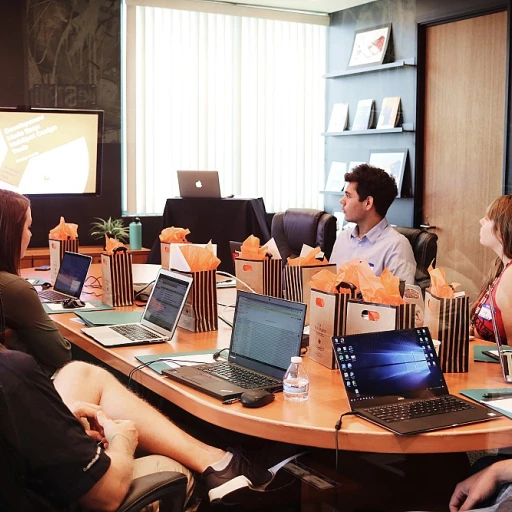
Understanding Lease Management in the Arabian Emirates
Gaining Insights into Lease Administration Practices
Effective lease management in the Arabian Emirates is an essential aspect of property administration, influencing not only property managers but also impacting the overall business performance. The landscape here presents unique dynamics due to the rapid evolution of the real estate market and increasing tenant demand. Navigating the intricacies of lease management requires a solid understanding of both local regulations and global best practices. Many companies operating in the Arabian Emirates face challenges in handling multiple aspects of leasing, from property acquisition to tenant relations and rental agreements. A well-organized management lease process becomes a priority to ensure seamless operations. With an extensive lease portfolio often comprising various lease agreements, property managers need to streamline lease data processing and reporting. Leveraging lease management software can enhance lease accounting, offering detailed insights into lease agreements and tenant activities. Furthermore, integrating specialized tools and management software facilitates effective lease administration. It aids in data accuracy and minimizes human error, enhancing the reliability of lease portfolios. Seattle property managers may find some similarities with lease management practices in the UAE, despite differing local regulations, given the global perspectives of both markets. The steps to manage a rental property efficiently in Seattle can offer insights or adaptable strategies for those handling similar tasks in the Arabian Emirates. For further understanding of this evolving domain and exploring multiple workflows for lease management activities, it is beneficial to engage with resources that delve into optimizing these activities in Arabian Emirate companies.Key Challenges in Lease Management
Identifying Key Obstacles in Lease Management
Lease management within the Arabian Emirates brings its own set of unique challenges. Understanding these difficulties is essential for office managers aiming to streamline operations and ensure efficient management processes. Most of these challenges stem from the dynamic nature of real estate dealings and the intricate legal frameworks associated with lease agreements.
Complex Lease Agreements
The legal intricacies and variables involved in lease agreements can be overwhelming. Multiple terms and conditions often need to be negotiated, which can increase the complexity of the overall management process. Therefore, thorough lease administration becomes pivotal to avoid costly delays and ensure compliance with regional and property-specific regulations.
Data Management and Reporting
Handling large volumes of lease data, from lease accounting to lease agreements, is another challenge. Property managers must ensure that lease portfolio and rental data are accurately collected, processed, and stored. Efficient data management facilitates reporting, which is critical for performance assessment and strategic planning. Software lease solutions can be a vital tool in managing this effectively and ensuring seamless administration.
- Software Implementation: The integration of management software can streamline data screening and reporting processes, significantly enhancing lease portfolio management.
- Real-time Data Access: Having immediate access to real-time lease data enables better decision-making and faster response times to tenant requests.
Tenant Interaction and Communication
Maintaining a clear and transparent communication channel with tenants is another pivotal aspect. Ensuring that both property management teams and tenants have a mutual understanding of lease terms can prevent misunderstandings or potential disputes. Moreover, proactive tenant communication supports a positive relationship, fostering tenant satisfaction and rental continuation.
For office managers in the Arabian Emirates, tackling these challenges requires not only a comprehensive understanding of the real estate market but also adapting to evolving trends and technologies. By addressing these key issues, office managers can position themselves to succeed in an ever-changing landscape of lease management.
Effective Strategies for Lease Negotiation
Mastering the Art of Lease Negotiations
For office managers in the Arabian Emirates, negotiating leases requires a deep understanding of both the local real estate market and the intricacies of lease management. An effective lease negotiation can significantly impact a company’s bottom line and operational efficiency. It’s crucial to enter negotiations well-prepared, armed with accurate lease data and a clear strategy.
One key aspect of successful lease negotiations is thorough preparation. This involves gathering comprehensive information about the rental property, including the property's financial health, lease agreements, and tenant history. Utilizing effective management software can streamline this process, providing valuable insights into the lease portfolio and leasing trends.
Another critical component is understanding lease accounting and creating a detailed financial analysis. Real estate negotiations should factor in current market conditions and forecast future trends. For instance, office managers should compare the potential rental property against similar properties within the region, effectively leveraging this data during negotiations.
Additionally, having a well-organized proposal that outlines the desired lease terms, rental prices, and equipment specifications can strengthen one's negotiating position. Property managers can benefit from a substantial reduction in rent or more favorable terms when they can present a clearly articulated case backed by solid data.
Finally, engaging in positive and community-focused tenant relationships can facilitate smoother negotiations. A management company that actively listens to tenant feedback and incorporates it into the lease administration process will likely pave the way for mutually beneficial agreements.
Leveraging Technology for Efficient Lease Management
Benefits of Technological Integration in Lease Management
The integration of technology has revolutionized lease management, transforming processes for increased efficiency and accuracy. Advanced management software has become a cornerstone in this area, offering tools that streamline lease administration, automate lease accounting, and optimize the management of a property portfolio. In the rapidly evolving landscape, property managers can leverage technology to improve their operational processes and decision-making capabilities.
Automation and Real-Time Data
Technological advancements allow for automation of repetitive tasks, reducing the manual efforts involved in lease administration. This includes automating rent collection, lease agreement renewals, and lease data reporting. Furthermore, real-time access to data is vital for effective lease management. Real estate managers can now make informed decisions promptly, based on the latest lease data trends and analytics available through innovative software solutions.
Centralized Lease Management Platforms
Adopting centralized management platforms ensures all lease-related information is accessible in one place. These platforms facilitate seamless communication between property managers, tenants, and maintenance teams, which is essential for efficient lease portfolio administration. They also simplify the reporting process, ensuring that managers have quick access to essential data for compliance and risk management. Utilizing these platforms reduces the chance of errors and enhances the accuracy of financial reports and lease accounting.
Improved Communication and Collaboration
Another significant advantage of integrating technology in lease management is the enhancement of communication and collaboration efforts. With specialized management software, property managers can easily coordinate with tenants across multiple properties, whether it be a rental property in Seattle or a real estate office in the Arabian Emirates. Effective communication ensures timely resolution of any issues, keeping tenant satisfaction high and fostering a positive relationship between all parties involved.
Streamlined Lease Negotiations and Renewals
Technology also plays a crucial role in streamlining lease negotiation and renewal processes. By utilizing modern software tools, property managers can maintain detailed records, track changes, and analyze historical lease agreements to negotiate more effectively with tenants. This optimizes the management process and minimizes potential disputes, ultimately saving time and resources for both landlords and tenants.
Risk Management and Compliance
Mitigating Risks and Ensuring Compliance
Effective lease management within the Arabian Emirates requires a diligent approach to risk management and compliance. Given the dynamic nature of real estate and its regulatory framework, lease agreements must be meticulously structured to mitigate potential risks. Property managers should prioritize a comprehensive review of all lease documents, ensuring accurate lease data entry and documentation across lease portfolios. This addresses not only property-specific risks but also financial considerations such as rent escalation, maintenance costs, and tenant obligations.
Compliance is paramount. Managers must stay informed about the laws governing rental property and lease administration in the region. This includes adherence to regulations around tenancy rights and duties, which are crucial in avoiding legal disputes and maintaining efficient property management.
Utilizing specialized lease accounting and property management software can significantly streamline the administration process. These tools not only automate lease management but also enhance the accuracy of lease reporting, facilitating compliance. Furthermore, companies in Seattle and beyond have set precedents in using technology to maintain impeccable audit trails, ensuring all lease changes are documented promptly.
- Invest in robust software lease solutions for enhanced data management and reporting.
- Ensure all lease agreements comply with current real estate laws.
- Regularly audit lease portfolios to identify and rectify any discrepancies.
- Maintain open communication with tenants regarding compliance requirements.
In conclusion, risk management and compliance in lease management go hand in hand. By adopting a proactive approach and leveraging technology, office managers can safeguard their lease portfolio against potential pitfalls, ensuring stability and continuity in their operations.
Future Trends in Lease Management
The Evolution of Lease Management Practices in the Future
The landscape of lease management in the Arabian Emirates is set to undergo substantial transformations. As the region continues to grow economically, the demand for more innovative and efficient approaches in handling property leases, responsibilities, and accounting processes is inevitable. These changes not only respond to local market dynamics but also mirror global trends witnessed from Seattle to other major real estate hubs.
In the near future, we can expect lease management to lean heavily on technological advancements. Automation and artificial intelligence are expected to support various aspects of lease administration, from managing tenants and portfolios to providing accurate and timely lease data reporting. Advanced software solutions are anticipated to streamline the complex reporting and accounting tasks associated with lease agreements.
Furthermore, sustainability and environmental considerations will likely influence future practices in lease management. As businesses become more environmentally conscious, there will be a greater push for greener buildings, which could affect rental agreements and property management strategies. Lease agreements may begin to incorporate clauses that address energy efficiency and waste management, reflecting broader shifts in tenant expectations and property management norms.
With these advancements, managers will need to stay adaptable and forward-thinking. Keeping up with these changes requires not only familiarity with new management software and tools but also a thorough understanding of evolving regulations and compliance requirements. As the future unfolds, those in the real estate and property management sectors will need to hone skills related to risk management and adaptability.
To remain competitive and successful in the evolving landscape, office managers and property managers in the Arabian Emirates must embrace these technological and procedural shifts. Building expertise in these areas will be critical as they strive to meet the diverse needs of their tenants and maintain efficient lease portfolios.













